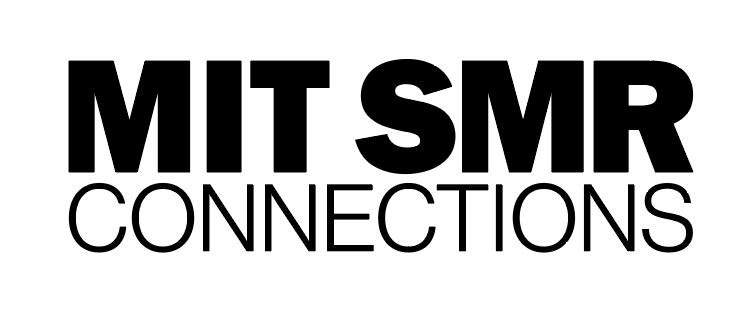BetterUp wants to bring data to human resources and create more fulfilled employees.
The way Alexi Robichaux tells it, his online executive coaching company BetterUp didn’t start because he was a bummed-out, burned-out mid-level manager on a vision quest. Sure, he spent nine months of post-employment with self-improvement books, sports psychology, life coaching, executive coaching, and all sorts of other precision-guided gazes at his own navel. But that wasn’t what did it.
In fact, Robichaux had found coaching as a high school student, when he and a pal provided what he calls “development and coaching” to their peers. Put aside, for a moment, the reasonable shudder of fear that might shimmy up your spine at the idea of telling your high school peers what you’re insecure about. Robichaux says he came back around to the idea because of science. “I got really excited about the decades of science from positive psychology. It just wasn’t operationalized in my life or in the workplace,” Robichaux says. “I realized, man, if I had had this, it would have totally changed my personal performance … That would have had real, positive business outcomes and also life outcomes.”
Does that sound like a line from a pitch deck? Well: On Wednesday, Robichaux’s BetterUp announced it had raised $103 million in venture capital, in a round led by Lightspeed Venture Partners. BetterUp provides coaching services to other companies, transmitted via digital device. “I think we all agree that we’re underinvesting in how to optimize the largest resource on the balance sheet, which is human capital,” says Will Kohler, a partner at Lightspeed. “If you ask, what do people want out of their workplace environment, one of the top responses is, to be developed, to get better, to develop their skill set.”
So now BetterUp is developing into a major player in the coaching and executive education world, alongside names like Patina and Lee Hecht Harrison. With its 200 employees and 1,000 coaches—all contractors—BetterUp serves almost 100 clients, a third of them in the Fortune 1000. That’s big.
“Coaching is a fantastic way to facilitate meaning and purpose.” – ALEXI ROBICHAUX, BETTERUP
Corporate America is into it. A recent study put the size of the coaching business at $12 billion. But the demand, goes the thinking, comes from the grass roots—from you and me and all the other corporate drones. A study of millennial workers by Deloitte said that people were more likely to stay with a company that encouraged and fostered their leadership potential. Those surveyed also said treating employees well was the most important thing about a company, above ethical behavior. (Environmental impact, social responsibility, innovation, and making good products ranked at the bottom.)
So, let’s say you believe that a new generation of workers is more interested than prior ones in finding meaning at their jobs. Why would a company care? After all, from one point of view (as a pretty good TV show put it), that’s what the money’s for. But maybe free snacks, good leave policies, and the ability to work from home are all just table stakes in the competition for talent. Maybe companies have to do more. The attraction to coaching, if there is one, might be the application of shiny new technological innovations to what used to be called Human Resources. “In just about every company, you don’t have the financial, analytic, and technology resources to do cutting-edge work in the people field,” says Laszlo Bock, who spearheaded a data-driven HR push at Google and then left to found Humu, which aims at improving employee happiness and retention not through coaching but through sentiment analysis and behavioral psychology. “So they go to third parties to get insight—Silicon Valley fairy dust.”
BetterUp’s folks say their fairy dust actually makes people fly. Metaphorically, that is—where “fly” means “increased productivity, better retention, higher job satisfaction.” Coaching has, BetterUp reps insist, good ROI. According to BetterUp’s own outcomes surveys, its confidential, on-demand coaching sessions reduce stress by 24 percent. Some companies have reported to BetterUp increases in performance of up to 26 percent, and a reduction in burnout of 15 percent. One company touted an increase in retention of 63 percent. For sure, these are hard things to measure. “One of the problems with coaching is that evidence has not been part of it, and measurement has not been core to the experience,” says Gabriella Kellerman, who runs research at BetterUp. She touts a series of validated psychometric measures of effectiveness as reasons a company might go with BetterUp rather than another provider.
Study after study says that while coaching may benefit workers, reliable results are hard to come by. Terms like “meaning” or “satisfaction” leave a lot of slack for interpretation. Digital coaching, BetterUp’s approach, is so new that there really isn’t much data on its effectiveness. “I’d say it depends on what the coach does, and the risk when doing this at scale is making sure there is a good fit and that useful work is being done,” says Peter Cappelli, a professor of management at the Wharton School of Business. “There is virtually nothing—indeed nothing I can think of—at the level of the individual employee that clearly drives revenue and so forth. There are far too many steps in the chain.”
“One of the problems with coaching is that evidence has not been part of it, and measurement has not been core to the experience.” – GABRIELLA KELLERMAN, BETTERUP
BetterUp and its clients acknowledge that. “There’s just not a ton of work to measure impact beyond participant reaction,” says Summer Davies, global senior manager of leadership development at Mars, a BetterUp client. “BetterUp is leading the industry to say, guys, we need a better way to measure … We said early on, metrics matter and we’re going to need to see an assessment of not only does the program work but does coaching work.”
Those metrics are still pending. But Mars nevertheless plans to expand the number of its employees—they call them Martians—in the program from 1,700 to 2,500 in 2020.
Still, talking to Robichaux and others in the orbit feels less about data and more about vibe. It’s difficult, in trying to determine whether coaching is “worth it,” to disentangle from ROI the more abstract notion of how coachees feel. “You want to find personal and career success,” Robichaux says. “We’ve always thought of these as two different ends, but increasingly we’re finding they’re not. Companies are starting to invest in what we call the whole person. If I take care of the whole person, I reap, selfishly, the rewards.”
Free snacks and what Robichaux calls “upskilling” aren’t enough. “Since I’m spending most of my time at work, I appropriately burden work now with generating a higher purpose of human fulfillment,” he says. “Coaching is a fantastic way to facilitate meaning and purpose.”
This theory of the case suggests that people now impute more meaning to their jobs than they used to. That’s possible, though BetterUp’s own research seems to define “meaning” more as participation in a common goal. What if that goal is increasing engagement with videos at all costs, or being Uber? Is that meaningful? Maybe “meaning” is actually just doing a good job and being appreciated for it.
The question is, who benefits from you finding that purpose? The first-order answer should be you, of course. You feel good. You’re less stressed. You whistle while you work. “Skills that people say they gain from coaching include being a better communicator, understanding interpersonal dynamics within the workplace, better time management, becoming more reflective, understanding where their blind spots are, and being more organized,” says Anna Blackman, a management professor at James Cook University who studies coaching. And, sure, those all sound like skills that’d be good to have at home, too.
If, as a result, your productivity increases, you’re a more inspirational manager of others, and you stay in the same job longer, that’s a conversion of your personal fulfillment into dollars. Some evidence even correlates stock price to employee engagement, though it’s hard to tell which causes which. So are you getting paid more of those dollars as a result? (That’s what the money’s for.) Or is your reward the rosy glow of satisfaction that comes from a meaningful job well done? Because I think I know which choice the shareholders will vote for.
I’m no kind of perfect employee, but I find a lot of personal meaning in journalism, for all the cliché-but-true reasons. But I also know it’ll never make me rich. It’s hard not to see this linking of coaching-to-fulfillment-to-profit as a kind of a professionalized prosperity gospel. Not everyone leaves a job and goes on a vision quest. Even fewer come back with both a mission and a pitch deck, and end up with $100 million in funding.





